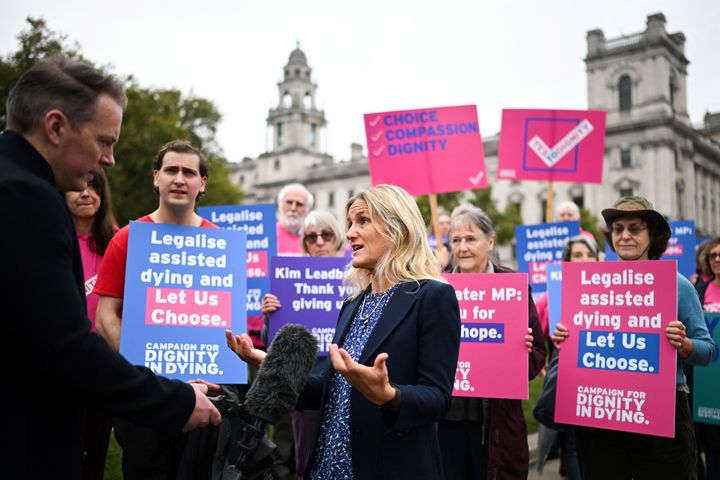British Lawmakers Vote In Favor Of Legalizing Assisted Dying
If the law passes, terminally ill adults in England and Wales with less than six months to live will be granted the right to choose to end their life with medical assistance.


British lawmakers on Friday voted in favor of a landmark bill to legalize assisted dying in the U.K.
In a historic vote, members of Parliament (MPs) supported the Terminally Ill Adults (End of Life) Bill by 330 votes to 275.
It followed four and a half hours of intense House of Commons debate as supporters and opponents of the bill locked horns.
Although the legislation still has several more hurdles to clear as it makes its way through Parliament, the result is a huge step toward it becoming law.
If it does make it onto the statute book, terminally ill adults in England and Wales with less than six months to live will be granted the right to choose to end their life with medical assistance.
The bill was introduced by Kim Leadbeater, a lawmaker from the ruling Labour Party, but MPs weren’t obligated to vote along party lines because it is a matter of conscience.
Nevertheless, the debate exposed splits within the Cabinet.
Health secretary Wes Streeting and justice secretary Shabana Mahmood spoke out against the bill, while work and pensions secretary Liz Kendall and energy secretary Ed Miliband were among those making clear they would vote for it.
Lord Cameron became the first former prime minister to support the bill earlier this week after Gordon Brown, Baroness Theresa May, Boris Johnson and Liz Truss spoke out against it.
But, only Cameron and May have seats in the House of Lords meaning they will get to vote on it once the bill is processed in the Commons.
MPs last voted on the issue in 2015, and rejected a different set of proposals by 330 votes to 118.







